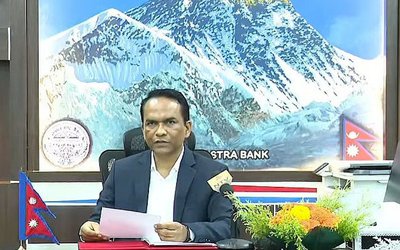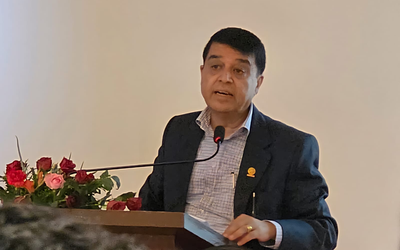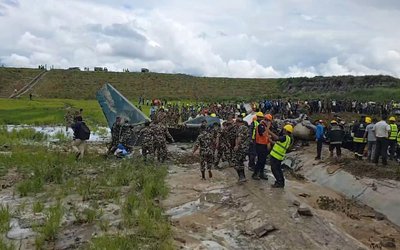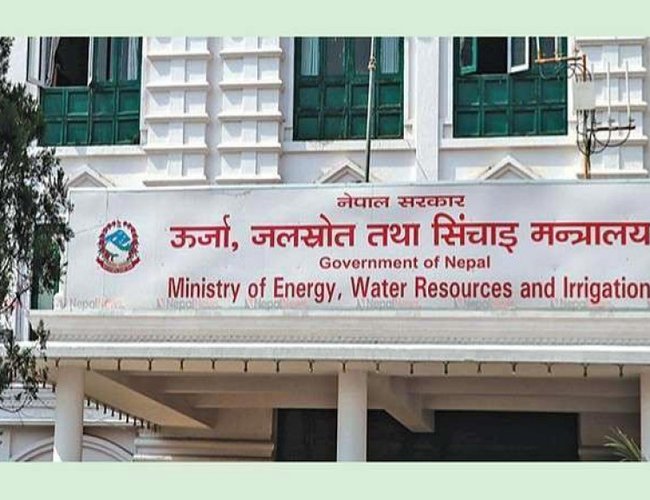
Co-funded by the European Union and the German Government, the Renewable Energy and Energy Efficiency Programme – Green Recovery and Empowerment with Energy in Nepal (REEEP-GREEN) project, supported by the European Union (EU) and the German Government, has been offering technical assistance to facilitate legal and policy reforms in Nepal to promote a transition to clean energy.
Nepal has set a goal of achieving net-zero emissions by 2045 and needs robust legal frameworks and policy reforms for renewable energy and energy efficiency. One of the most significant milestones in this transformation is the Renewable Energy and Energy Efficiency (RE and EE) Bill–2081, developed with REEEP-GREEN’s technical support. Drafted by the Ministry of Energy, Water Resources and Irrigation (MoEWRI), the bill has passed the National Assembly and is currently under discussion in the House of Representatives.

Bridging Gaps Through Technical Assistance
Despite Nepal’s Constitutional Provision for clean energy, alignment with the Social Development Goals (SDGs), and the submission of its NDC in 2018 and an NDC-03 under the Paris Agreement, Nepal has lacked comprehensive legislation governing this sector—until now.

Sagar Raj Gautam, Spokesperson of (MoEWRI)
In order to achieve its target of reaching net-zero emissions by 2045, Nepal requires robust legal and institutional frameworks that encourage the adoption of renewable energy and energy efficiency measures. The project has been addressing the absence of comprehensive legislation in this field.
“The Renewable Energy and Energy Efficiency Bill–2081, which has already passed the National Assembly and is now under discussion in the House of Representatives, marks a critical policy milestone for Nepal. By establishing a legal framework to scale up clean energy adoption and reduce energy waste, the bill sets the foundation for a more resilient, inclusive, and low-carbon energy future. It encourages innovation, attracts investment, and paves the way for decentralized renewable solutions that are vital for remote and underserved communities,” said Sagar Raj Gautam, Joint Secretary and Spokesperson at the Ministry of Energy, Water Resources, and Irrigation (MoEWRI".
"REEEP-GREEN has played a crucial role in the development of the Renewable Energy and Energy Efficiency Bill and in enhancing institutional capacity," stated Gautam, Joint Secretary and Spokesperson at the Ministry of Energy, Water Resources, and Irrigation."
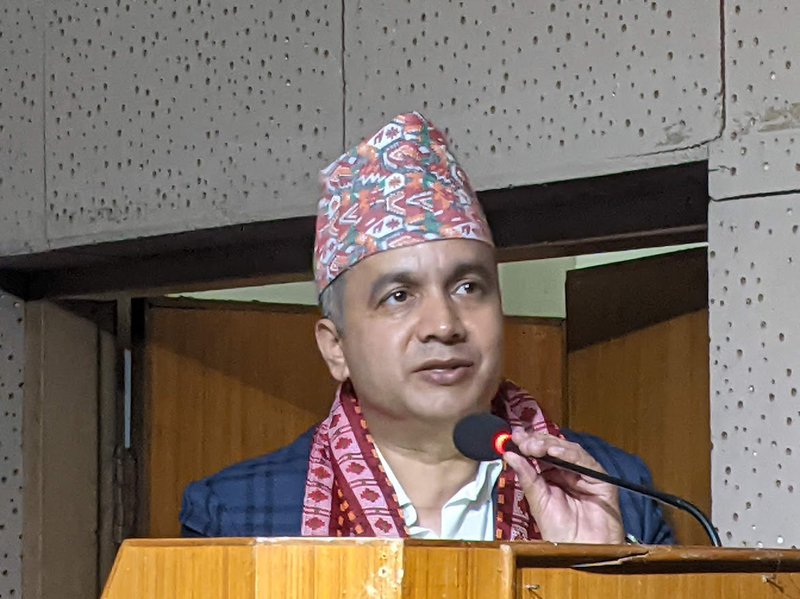
Nawa Raj Dhakal, Executive Director at AEPC
Nawa Raj Dhakal, Executive Director at AEPC, emphasized the significant contribution of REEEP-GREEN in enhancing energy access in off-grid communities through policy support in solar, micro-hydro, and biomass, which are essential for Nepal's targets of achieving universal energy access by 2030 and zero emissions by 2045.
Dr. Ram Prasad Dhital, Chairperson of the Electricity Regulatory Commission, highlighted the importance of technical capacity in driving tangible change and acknowledged the role of REEEP-GREEN in improving regulations related to tariffs, billing, private sector engagement, and regional grid management.
Maheshwor Dhakal, UNFCCC focal person and Head of the Climate Change Division at the Ministry of Forest and Environment, emphasized that the Renewable Energy and Energy Efficiency Bill aligns with Nepal's objectives of achieving universal energy access by 2030 and zero emissions by 2045. He underscored the promotion of sustainable energy access and the need for inter-agency collaboration at all government levels.
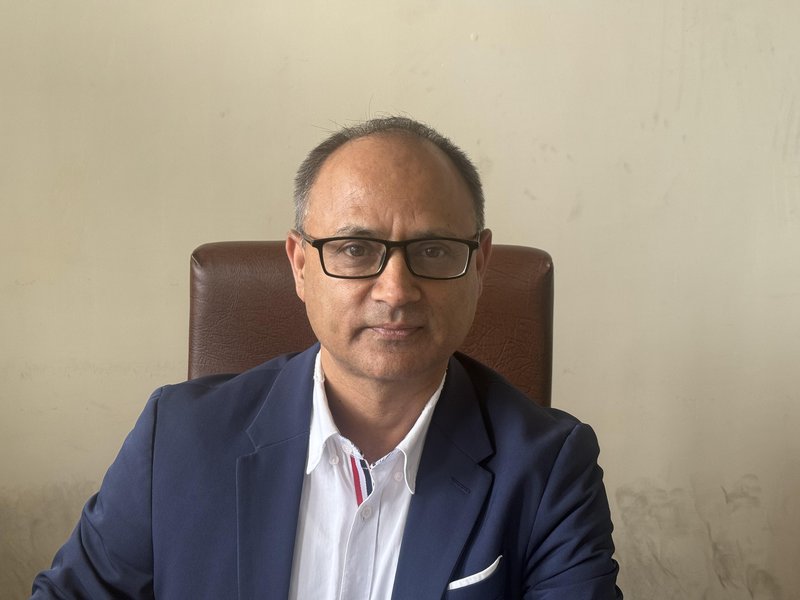
Maheshwor Dhakal, UNFCCC focal person
Dhakal further stated, "The bill will enhance public access to sustainable energy and foster coordination among government entities for effective implementation. The support provided by project has been instrumental in shaping and advancing this legislation, ensuring that national laws are in line with global climate targets and that the transition to clean energy is equitable and inclusive."
This policy-level assistance ensures the integration of renewable energy and energy efficiency into Nepal's broader climate, energy, and development strategies.
Dr. Dhital, Chairperson of the Electricity Regulatory Commission (ERC), highlighted the challenges faced by the ERC in regulating the electricity market due to a lack of technical capacity and tools, despite being operational for seven years. He emphasized the critical role of the recent support from the REEEP-GREEN Project in strengthening Nepal's national framework for renewable energy and energy efficiency.
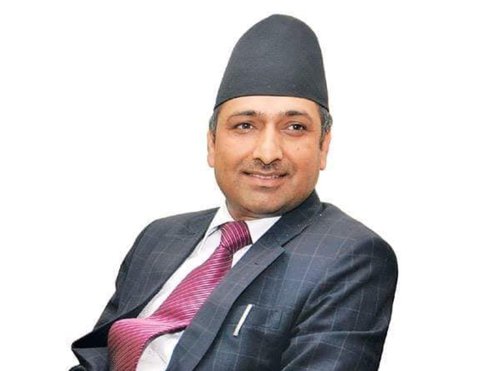
Dr. Ram Prasad Dhital, Chairperson of the Electricity Regulatory Commission
Nepal’s Energy-Related Plans and Policies
Nepal's energy policy encompasses various legislative and strategic measures to enhance the energy sector. Key policies include the Nepal Electricity Authority Act of 1984 and the Water Resources Act of 1992. The Hydropower Development Policy of 1992 and 2001 promoted private sector involvement in hydropower. Other significant policies include the NEA Community Electricity Distribution Bye Laws 2003, the National Water Plan of 2005, the Rural Energy Policy 2006, and the National Energy Efficiency Strategy of 2018.
Reforming and updating these regulations, policies, and strategies is crucial in the current context. REEEP-GREEN is providing technical assistance for their revision to help Nepal achieve its zero-emission commitment by 2045. GIZ, supported by the German Government, has been offering technical assistance to Nepal's renewable energy and energy efficiency sector for over 13 years.
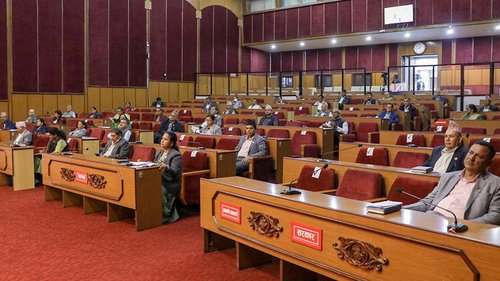
Natioal Assembly meeting passing the Bill
Long-Term Impact and Future Pathways
REEEP-GREEN, which builds on GIZ’s long-standing energy programs in Nepal, shaping the country's energy trajectory towards inclusive and sustainable development.
The Renewable Energy and Energy Efficiency (RE and EE) Bill-2081 is a significant policy milestone for Nepal, setting the stage for clean energy adoption and energy efficiency measures. With project’s technical support, Nepal is moving towards a low-carbon energy future, aiming to achieve universal energy access and meet Sustainable Development Goals.
As Nepal faces increasing energy demands and climate challenges, REEEP-GREEN's assistance in bridging legislative gaps and strengthening institutions is crucial for a resilient energy future.
- Saurya Air Crash: Negligence of Regulatory Authority And Airlines Management
- Jul 19, 2025
- Zelenskyy moves to restart talks with Russia
- Jul 19, 2025
- Weather Forecast: Partly To Generally Cloudy Across The Country, Light to Moderate Rain Is Likely In The Hilly Areas
- Jul 19, 2025
- Gelephu Roadshow 2025: Connecting India and Bhutan for Sustainable Development
- Jul 18, 2025
- KOICA Signs MOU for the Rural Development Project worth US$ 8 million with MoF
- Jul 18, 2025
